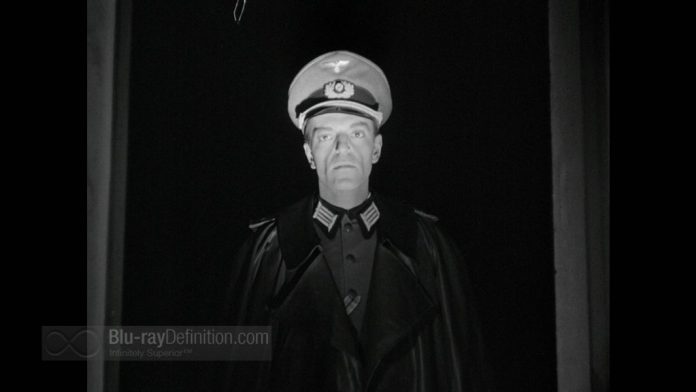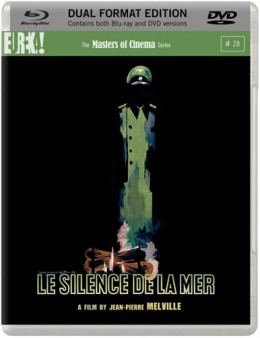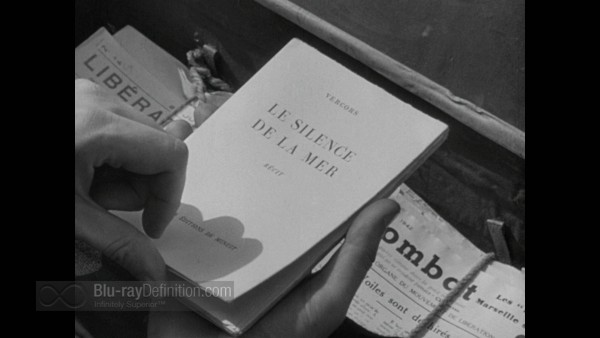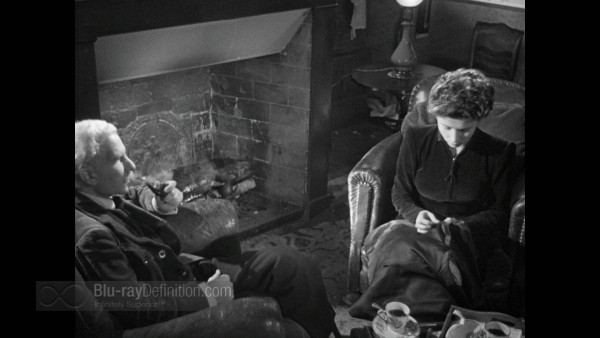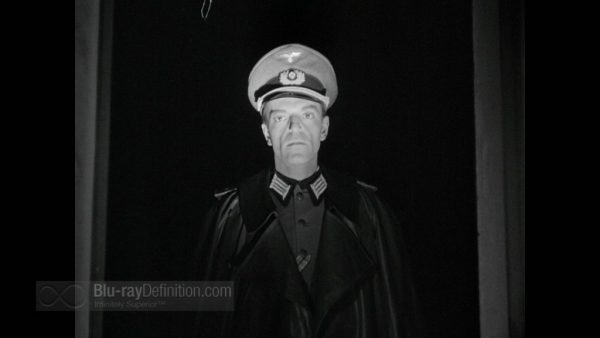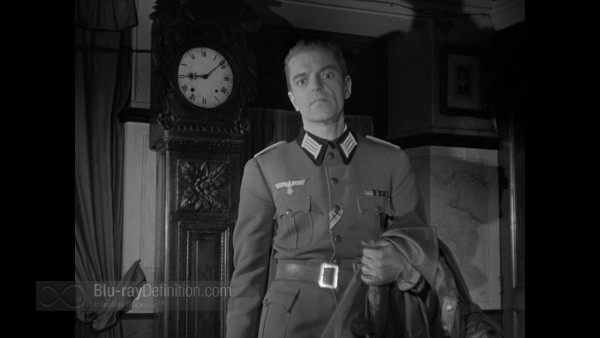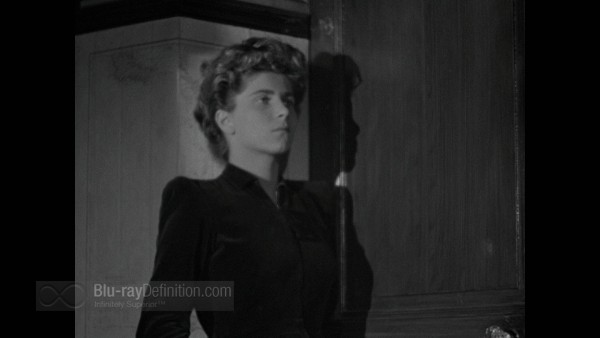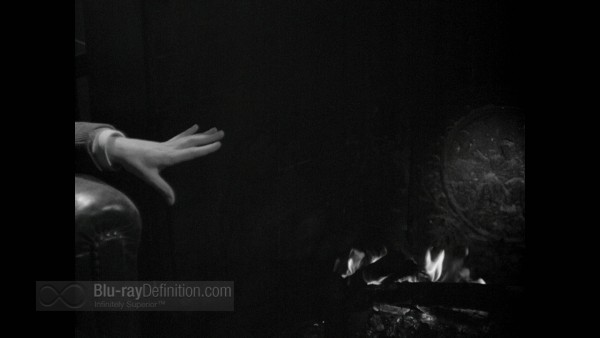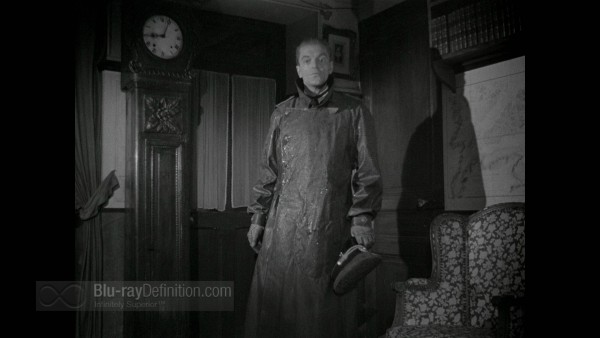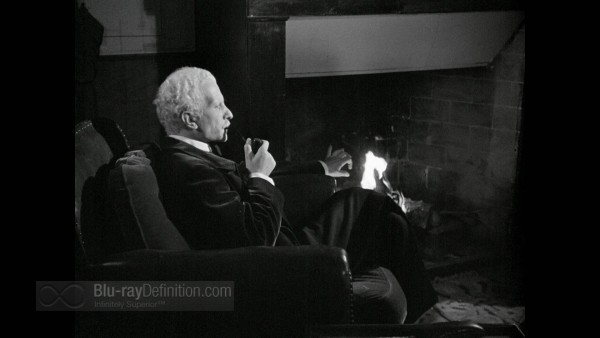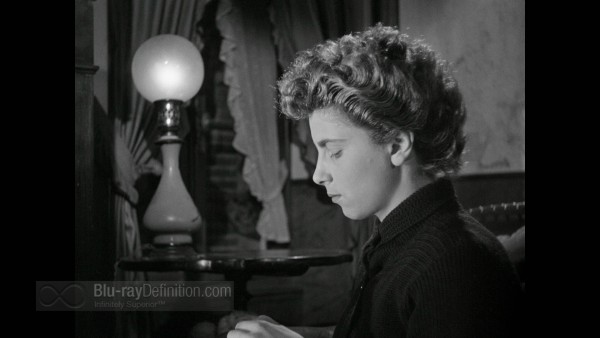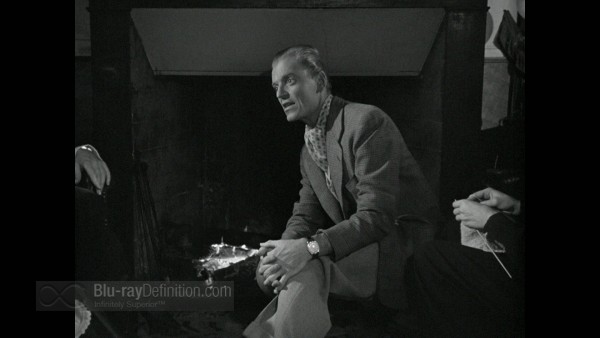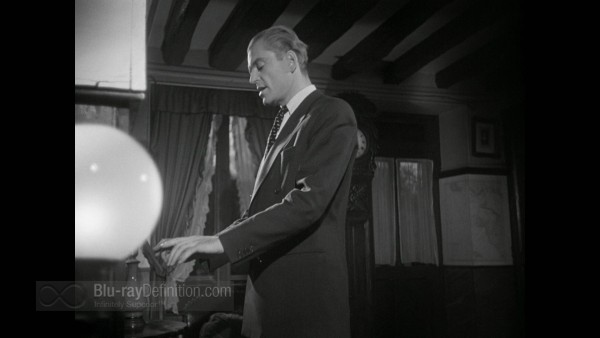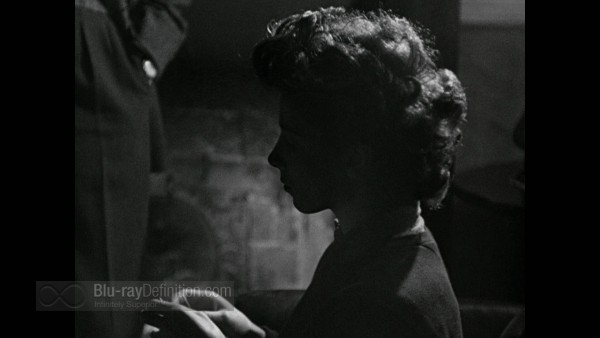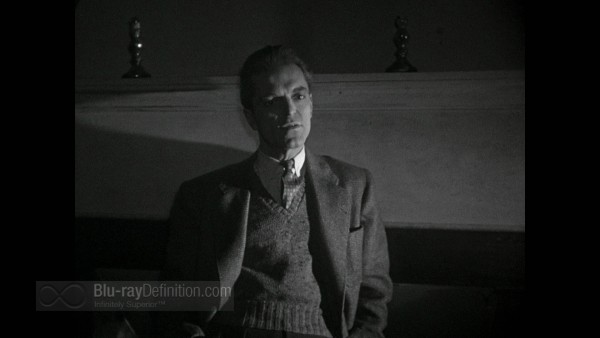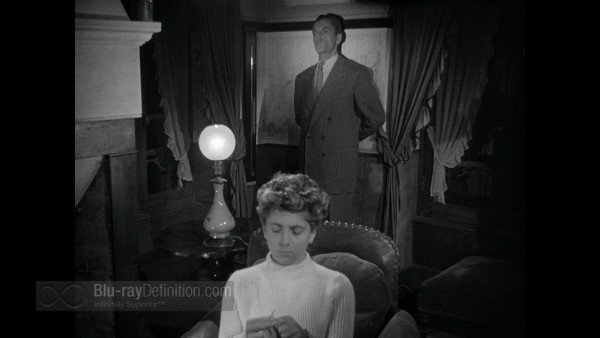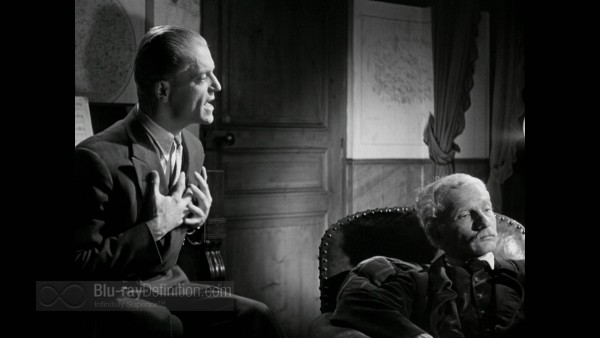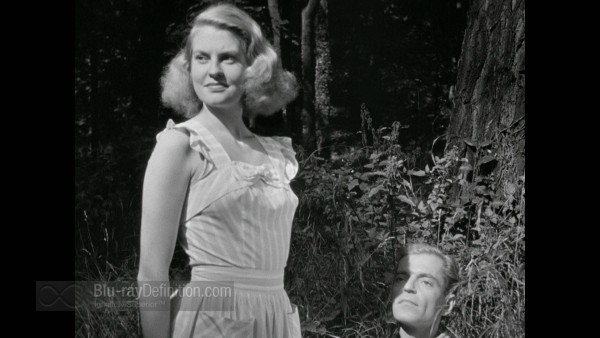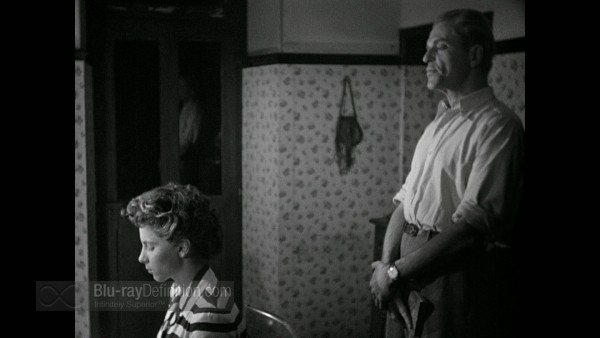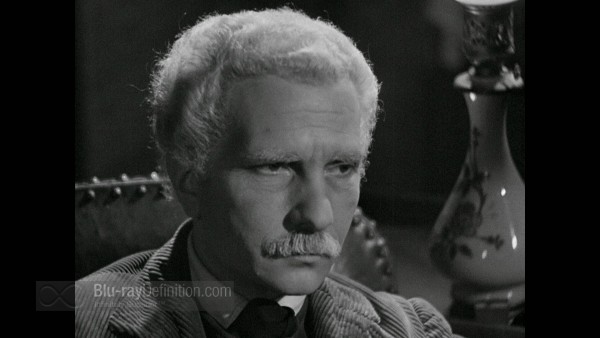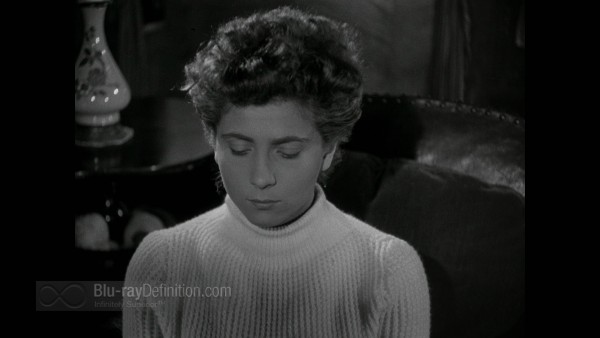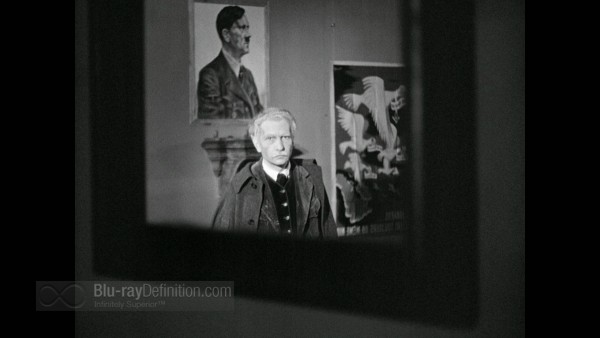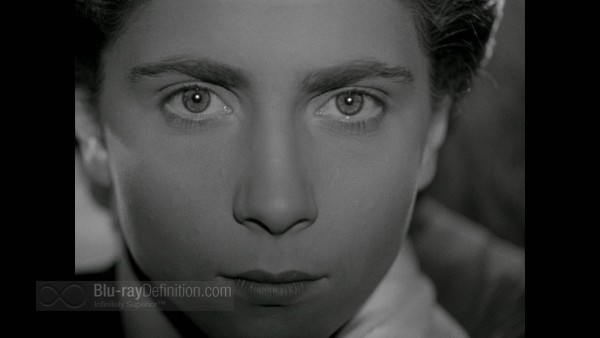–
The Film
[Rating:4.5/5]
The World War II French Resistance fighter turned innovative filmmaker, Jean-Pierre Melville (Army of Shadows, Le cercle rouge) launched his career with his debut feature film, Le Silence de la mer. The film, based on the novella of the same name by French Resistance writer Vercors, is a nearly miraculous debut that looks forward to the noir, gangster films that would define Melville’s career and predate the innovations of the French New Wave.
A controversial story set in the early days of World War II during the Nazi occupation of France and partially filmed in the home of author Vercors, Silence tells the story of German officer Werner von Ebrennac (Howard Vernon) who is billeted to the rural home of an elderly Frenchman (Jean-Marie Robain) and his young and beautiful niece (Nicole Stéphane). The uncle and niece meet the German soldier with nothing but defiant silence, but slowly Ebbrennac begins telling them every evening stories of his life. He opens up to them about his love of France and its art and culture, sharing his belief of how a marriage between the two nations would be to the betterment of them both and would help restore France to its former glory; all the while, Ebbrennac intimating his infatuation with the elderly man’s young niece and attempting to woo the cold, silent, and distant young woman with his passionate and romantic tales.
Melville’s film is creative in its use of lighting and camera work – amazing given his lack of budget and help from the film industry (he had no official union card at the time). He was attempting to restructure the use of action and sound in film and he did in a seemingly effortless way. From the moment Ebbrennac comes to the home of the uncle and niece, we are confronted at first with a stark, noir-ish image of the soldier standing in the doorway and then the deliberate “tick-tick” of the clock in the room as Ebbrennac seemingly moves in time to its metronomic rhythm.
Nearly the entire film is told in narration, either through the voiceover of the uncle, or Ebbrennac’s nightly monologues to his “captive” and silent audience of two and this works to heighten the tension and intimacy of Silence but also to ultimately humanize the German further – the source of much controversy upon the film’s release.
In all, it is a stunning and brilliant debut that not many directors that have been at it for years can achieve. True genius.
Video Quality
[Rating:4/5]
This is a rather solid looking transfer of Silence from Eureka’s Masters of Cinema imprint. After what looks like a quite rough opening scene, the AVC/MPEG-4 1080p 1.37:1 framed encodement settles down and becomes relatively clean and detailed. There is what I would call a medium level of contrast, with blacks being deep, but not absolutely inky, and overall brightness being good, but perhaps at times looking just a tad dull. Not to worry, however, this sounds worse on paper than it looks in the real world. The image looks authentic and as one would expect from a carefully restored black and white film from 1949.
Audio Quality
[Rating:4/5]
The French monaural soundtrack comes in a DTS-HD Master Audio 2.0 configuration and offers clean dialogue, a rather good bit of range, and little in the way of clipping or hiss.
Supplemental Materials
[Rating:3/5]
We get the usual slate of high quality supplements from Masters of Cinema with this release of Le Silence de la mer including two video featurettes delving into the life and career of Melville and production of the film, plus the usual high quality booklet with essay and archival interview with the director.
The supplements:
- Ginette Vincendeau on Le Silence de la mer (1.33:1; 00:22:54) – Filmed at The Flea Pit, London, March 2007. The French film expert discusses the significance of Melville’s first film.
- Melville out of the Shadows documentary (1.78:1; 1080p/24; 00:42:14) – A look into the life and career of Melville featuring interviews with his friends and colleagues.
- Original Theatrical Trailer (1.37:1; 1080p/24)
- Booklet: The extensive illustrated booklet contains an extract from film scholar Ginette Vincendeau’s Jean-Pierre Melville: An American in Paris, an interview with Jean-Pierre Melville conducted by Rui Nogueira from1971, notes on viewing the film, and Blu-ray and DVD credits.
- DVD
The Definitive Word
Overall:
[Rating:4/5]
Another unbelievably worthy classic from the appropriately named label, Le Silence de la mer is top notch in this Masters of Cinema Dual Format edition. Highly recommended.
Additional Screen Captures
[amazon-product region=”uk” tracking_id=”bluraydefinit-21″]B005SDDD1W[/amazon-product]
[amazon-product region=”uk” tracking_id=”bluraydefinit-21″]B005SDDD1W[/amazon-product]


